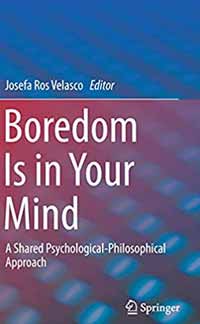This book offers a unique perspective on the topic of boredom, with chapters written by diverse representatives of various mental health disciplines and philosophical approaches. On one hand, studying boredom involves the mental processes of attention, memory, perception, creativity, or language use; on the other, boredom can be understood by taking into account many pathological conditions such as depression, stress, and anxiety. This book seeks to fill the knowledge gap in research by discussing boredom through an interdisciplinary dialogue, giving a comprehensive overview of the past and current literature within boredom studies, while discussing the neural bases and causes of boredom and its potential consequences and implications for individual and social well-being.


